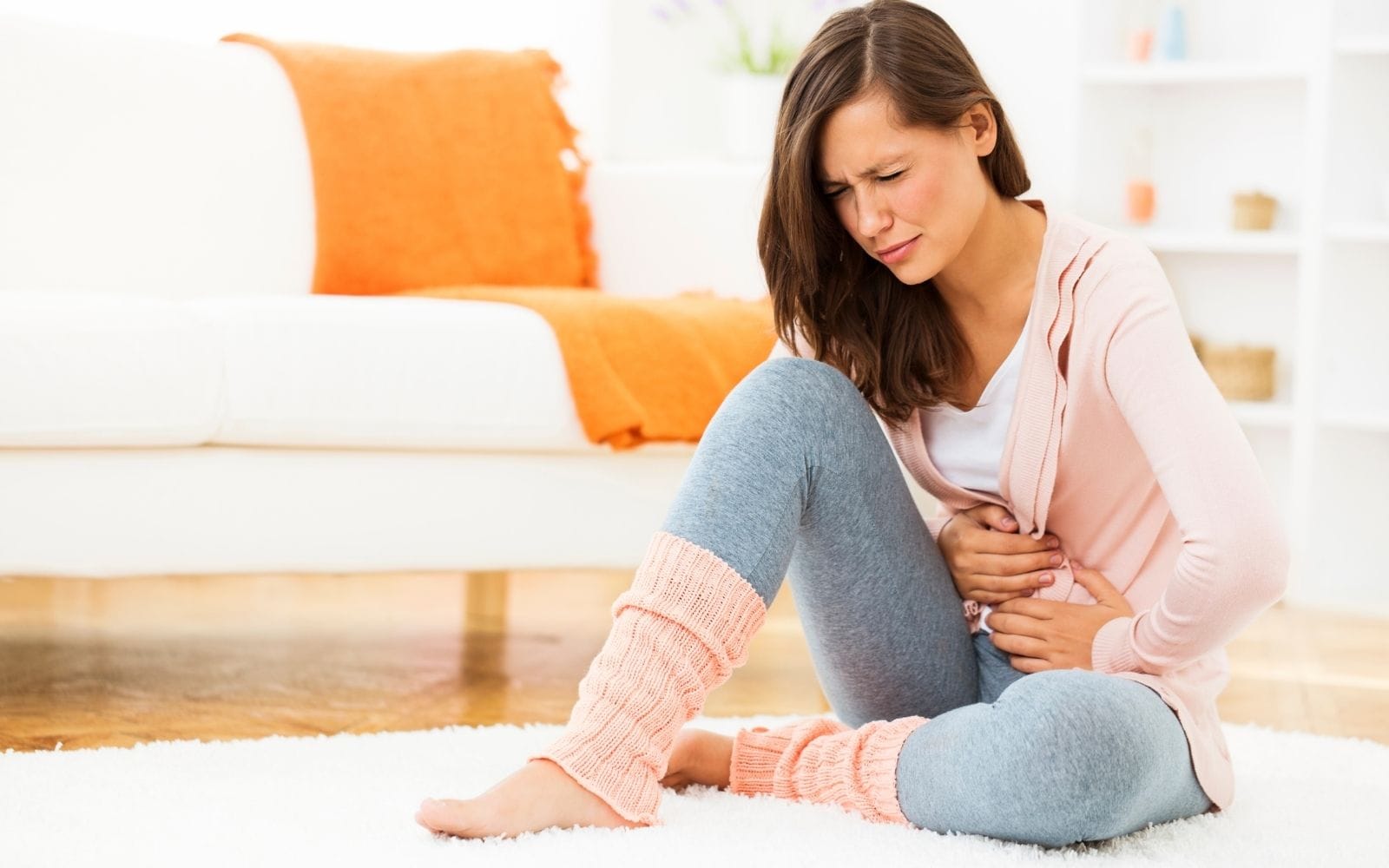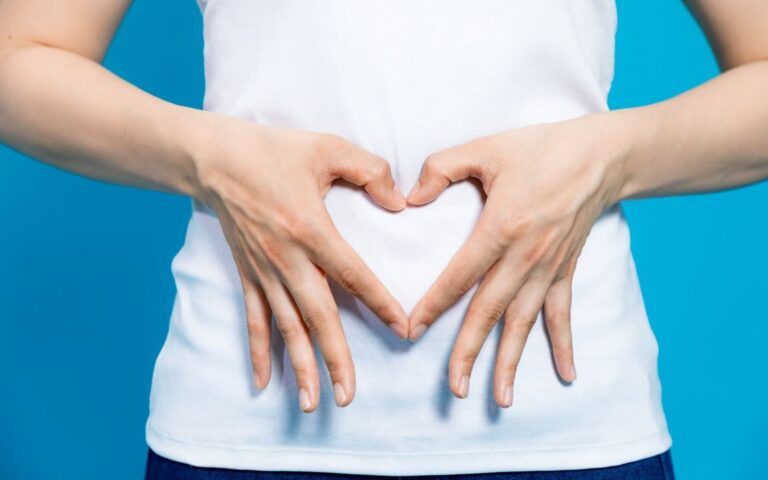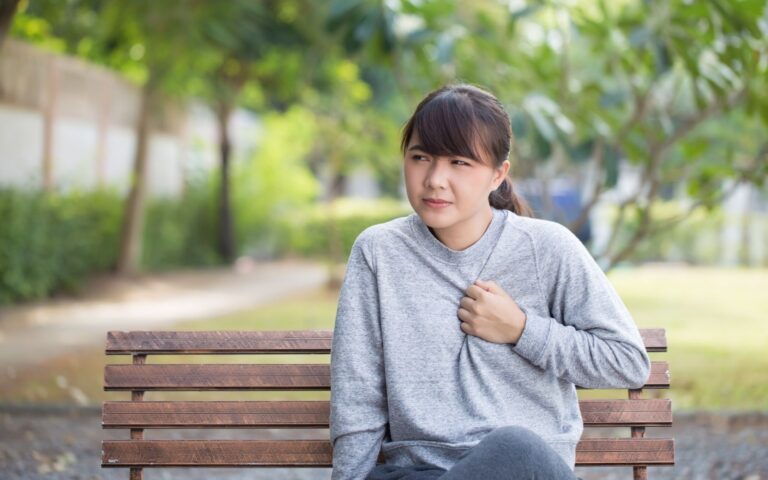11 Awesome Teas For Cramps: A Natural Painful Period Relief

Disclosure: This post may contain affiliate links. If you click on a link we may make a small commission at no extra cost to you. You can read the full disclosure here
Tea For Cramps
Many women try to find natural relief for what is essentially a normal part of their period, menstrual cramps! Although a certain amount of bloating and discomfort is to be expected, it can still be rather painful and interfere with normal life. At worse painful periods can be completely debilitating. So if you’re looking for relief and are keen to avoid over-the-counter medication, then tea for cramps may be worth your consideration.
Teas To Relieve Menstrual Cramps
What you eat as well as what you drink can play an important part in reducing your period cramps. Making small changes to your diets, such as boosting your fruit and vegetable intake is one way, sipping tea is another.
Known for their anti-inflammatory capabilities, some herbal teas can be effective in reducing muscle spasms. So if you suffer from painful periods and want to escape the ‘monthly nightmare’, then teas might just be what you’re looking for.
True teas are brewed from the leaves of the Camellia Sinensis plant such as green tea, black tea, and oolong tea. Herbal teas are made from dried flowers, fruits, herbs, and spices. They all boast health-promoting properties.
1. Ginger Tea
Made from the pungent ginger root, it creates a slightly spicy tea, that feels very soothing when you’re suffering from menstrual discomfort. It has been used for many years for both culinary and medicinal purposes. A popular home remedy, ginger can be used for a variety of ailments. It is known to have anti-inflammatory and pain-relieving properties, so it may well help with painful period cramps. It can also help to relieve nausea and stomach upset which alas can be another side-effect associated with some people’s periods.
2. Peppermint Tea
Has a calming effect on the stomach, making it a natural rescue remedy for many digestive issues. The tea is rich in menthol, the active ingredient believed to be behind its benefits. It is thought to have anti-spasmodic properties which may help to reduce uterine contractions, therefore, easing painful stomach cramps.
3. Chamomile Tea
A very calming tea, which has been used as a herbal medication since ancient times. It remains popular today as many believe it can help to improve sleep and relaxation. It contains many medicinal nutrients which have been linked to reducing the pain of menstrual cramps through their sedative and anti-inflammatory properties.
4. Raspberry Leaf Tea
A mild tasting brew that contains a compound called ‘fragarine’ which is thought to help tone the uterine muscles. It is said to prevent muscle spasms which reduces menstrual cramps and bloating. Many women support the benefits of Raspberry Leaf Tea, although more evidence is required to confirm its claims.
5. Green Tea
A true tea, brewed from the leaves of the Camellia Sinensis plant. Thought to be one of the healthiest drinks worldwide. Packed with antioxidants that have anti-inflammatory properties, helping to combat menstrual cramping and reducing pain. Green tea has a range of possible health benefits, is naturally low in calories, calming, and contains less caffeine than black tea.
6. Oolong Tea
A lesser-known variety of true tea is also made from the Camellia Sinensis plant. It offers tea drinkers a distinctive and unique flavor profile ranging from light floral tones to deep caramel notes. A cross between black tea and green tea, this partially oxidized brew shares myriad health benefits with both. It is said to promote a healthier balance of gut bacteria which may help to improve overall health and well-being and has also been associated with reduced pelvic pain connected with menstruation.
7. Fennel Tea
Crafted from the seeds of the fennel plant with a sweet licorice-like flavor, this tea is well-known for treating bloating and digestive issues. It is said to have anti-inflammatory, anti-fungal, and antioxidant properties. Fennel is thought to be a great herbal tea for menstrual cramps. Research suggests that this herb keeps the uterus from contracting, thereby reducing discomfort and offering some relief from painful periods.
8. Cinnamon Tea
This aromatic brew is believed to provide various health benefits including reduced menstrual pain through its anti-inflammatory properties. As a digestive aid, cinnamon may have a stimulating effect, improving gastrointestinal health and making the system more efficient. This could lead to less constipation, bloating, and cramping. By reducing inflammation cinnamon tea may calm an upset stomach, reduce pain and prove to be a soothing and relaxing remedy for a wide range of health issues.
9. Dandelion Tea
This drink is both tasty and nutritious. Dandelion has both anti-inflammatory and diuretic properties, which is supported by growing scientific data. This tea can be especially beneficial if your monthly discomfort is aggravated by fluid retention as it actively encourages urination. Reducing excessive bloating can leave you feeling more comfortable in your own body during your menstrual cycle.
10. Cramp Bark Tea
Cramp bark has a long history of traditional use for its anti-inflammatory and calming properties. It has a strong earthy flavor and is said to help relax the body. It is believed to prevent cramps in the smooth muscle thereby reducing muscle tension and helping to ease uterine cramps. Despite its common use, research is limited on its effectiveness.
11. Lemon Balm Tea
A refreshing herbal tea that is a great source of antioxidants helping to reduce inflammation. Lemon Balm may also have antispasmodic effects helping to reduce or prevent period pain. This tea is also believed by some to help calm anxiety and treat insomnia which may be significant for some during their menstrual cycle.
☝️This Twinings Mint Green Tea is my number 1 choice for soothing menstrual cramps☝️
How Tea Helps To Relieve Menstrual Cramps
Menstrual Cramps are usually felt in the stomach, back, and even the thighs. They can feel anything from a dull ache to an intense spasm. Your pain experience may even vary from month to month.
The pain is caused by the contraction of the womb as it tries to shed its lining. The tissues in your womb release chemicals that trigger pain. Some women experience stronger contractions than others.
Herbal or true teas can be a great natural remedy for menstrual cramps and offer much-needed relief from pain and period discomfort. Not only is a warm cup of tea in itself comforting but its anti-inflammatory properties can be really helpful in soothing cramps and easing pain.
Moderate consumption of tea is usually a very healthy choice for most people. However, it’s a good idea to talk with your healthcare provider before starting anything new. It’s important to be certain there are no contraindications such as caffeine sensitivity or allergy that may be pertinent to you. This way, you avoid any unnecessary risks and are free to enjoy the pleasures and benefits of your chosen tea.
Conclusion
Drugs are not the only option when it comes to dealing with painful menstrual cramps. Herbal and true teas may also be very effective alternatives. Many have impressive health benefits but a word of caution, some have side effects too! If you need further guidance on which teas are right for you then be sure to seek medical advice. Otherwise, don’t miss out on these promising natural remedies for easing menstrual pain, just do your research first!
What drinks help menstrual cramps?
Water is always a good choice as it keeps you hydrated and helps to avoid uncomfortable bloating. However, many herbal and true teas not only help with hydration but also boast the added bonus of anti-inflammatory properties which may help to reduce menstrual cramps.
Is hot tea good for cramps?
Hot tea is very soothing when you are suffering from painful periods. It also has anti-inflammatory capabilities that are said to help relieve menstrual cramps.
What tea is good for bloating?
Four top herbal teas to try for bloating and digestive issues are peppermint, ginger, chamomile, and fennel. All are believed to naturally aid in digestive health and soothe abdominal discomfort.
Does tea make menstrual cramps worse?
Excess caffeine can increase menstrual cramps in some people, so it may be advisable to moderate your intake. Opt instead for caffeine-free herbal teas to keep you hydrated whilst also benefitting from their powerful antioxidants.







